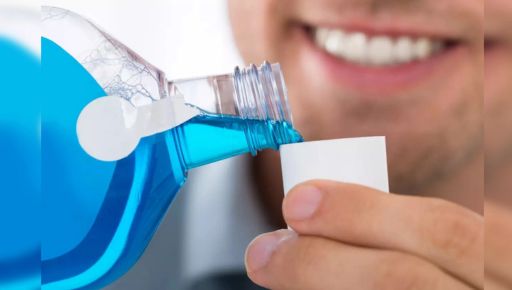Mouthwash – Friend or Foe?
Mouthwash, which you can find in many bathrooms, claims to give you fresh breath and a better smile. But is this easy oral rinse really helpful or harmful?
Let us get into the details of mouthwash and talk about its possible pros and cons. Talk to a Fresno family dentist for more information on how to take care of your teeth.
The bright side of mouthwash.
Mouthwash is often just seen as a cosmetic product, but it can also be good for your oral health in a number of ways:
- Fresh breath: Mouthwash can cover up bad breath for a short time by killing germs that cause bad breath. But it is important to get rid of the cause of bad breath that will not go away, which could be a medical problem or bad oral care.
- Getting rid of plaque and gingivitis: Mouthwashes with chlorhexidine or essential oils can help get rid of plaque and gingivitis. Tooth plaque is a film of germs that sticks to teeth, and gingivitis is swelling of the gums.
- Cavity prevention: Tooth enamel can be strengthened by mouthwashes that contain fluoride. This makes it more resistant to acid attacks that can cause cavities.
- Sensitivity relief: Some mouthwashes have chemicals that can help make teeth less sensitive.
The hidden dangers of mouthwash.
Even though mouthwash has some benefits, it is important to know about its possible downsides:
- Changes to the oral microbiome.
There are many types of bacteria in your mouth, some good and some bad. Too much mouthwash, especially with alcohol, can throw off this delicate balance, which can cause problems with your oral health.
- Dry mouth.
Mouthwashes with alcohol can dry out the mouth, which makes less saliva. Saliva is very important for oral health because it cleans out the mouth, neutralizes acids, and gives the body the vitamins it needs. Tooth loss, gum disease, and bad breath are all more likely to happen if your mouth is dry.
- Tooth Stains.
Some mouthwashes, especially those with chlorhexidine in them, can damage teeth. Brown or yellow spots may show up after some time of usage.
- Hidden problems with oral health.
Mouthwash can cover up bad breath for a while, but it does not get rid of the cause. Bad breath that will not go away could be a sign of something more serious, like gum disease or a problem with your whole body’s health.
- Possible for too much use.
Mouthwash can be helpful, but it should not be used instead of cleaning and flossing your teeth every day. If you depend too much on mouthwash, you might forget to do other important things for your oral health.
How to choose the right mouthwash.
When choosing a mouthwash, think about these things:
- Content of alcohol: Choose mouthwashes that do not contain alcohol to lower your risk of dry mouth and changes to your oral bacteria.
- Fluoride content: Mouthwashes with fluoride in them can help make tooth enamel stronger.
- Ingredients that are active: Search for mouthwashes that have fluoride, chlorhexidine, or essential oils in them.
- Talk to your dentist: Your doctor can tell you which mouthwash is best for you based on your oral health history and any other health problems you may have.
How to use mouthwash effectively.
Brush and floss your teeth before using mouthwash to get the most out of it. Swish it around in your mouth instead of gargling because it does not irritate the throat. Swish the mouthwash around for 30 seconds.
Instead of swallowing, spit out the liquid. Swallowing can have side effects that you did not expect. Follow your dentist’s or the box’s instructions on how much mouthwash to use. Too much use can lead to problems with germs in your mouth and other issues.
When you know the good and bad things about mouthwash and use it correctly, you can add it to your daily oral care routine to improve your oral health. Remember that mouthwash is helpful, but it should not be used instead of brushing, flossing, and going to the dentist regularly.

